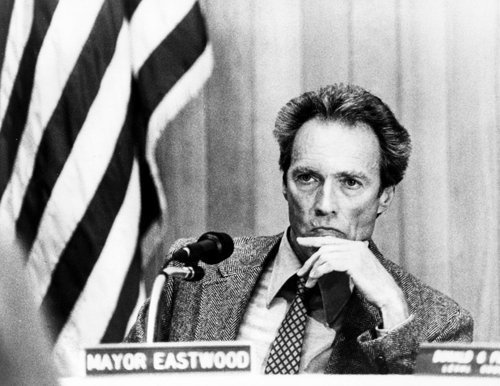I know I’ve been beating the drum quite a bit on Home Rule for Dallas ISD. Our district clearly has governance problems, and home rule is a way for us to write a new constitution for the district to try to improve the governance model a bit, given the extensive evidence that suggests this will lead to ultimate improvements for our kids.
I’m not the only one who thinks we need clearer lines of authority under the current governance model. Board president Miguel Solis yesterday, in explaining the agenda for this Thursday’s special meeting over the Dade incident, said:
“It is my hope that any action the board chooses to take will lead to a better definition of governance and management and to ensure that events leading up to and occurring on October 13th do not repeat themselves.”
I think that’s a worthwhile goal, which is why I’ve been writing for months about governance reform in DISD. I’ve offered nine reasonable, workable suggestions for the Home Rule Commission to include in any charter document that must go in front of the voters. I’ll stop with the nice round number of 10. This one may be the most strategically important. It is also the most controversial. Before I get into the details, then, some background philosophical matters.
What do you think a public school system really is? Is a public school system just a *free* school system? If that’s the case, most public schools charge fees for band uniforms, participation in extra curricular activities, and the like. So, perhaps not completely free, but mostly free. Then again, there are some private schools that are mostly free to needy families. How about we define it to mean “established by the government, funded with tax dollars”? If that’s the case, we’ve now ruled out private schools that get voucher dollars (which don’t exist in Texas, but do in some states). But we’re including charter schools and traditional public schools. Then, perhaps se need to refine our terms even more. The key difference between public schools and charters is that the former have an elected school board. Let’s include that in our definition, so we can wipe out charter schools for this discussion. If this is your definition, and you want to think of only traditional public schools as public schools, you’re probably okay. So a public school system is a school system that is established by the government, funded with tax dollars, governed by an elected school board.
Except that definition means there are no public schools in New York City, Boston, Chicago, Philadelphia, Jackson, Baltimore, Cleveland, Washington D.C., Providence, Trenton, Yonkers, St Louis, or New Orleans.
I feel like I need to emphasize that point. If you think public schools are only public schools if there is an elected school board, then there are no public schools in (at least) those 12 cities representing 16 million people. Oh yeah, I forgot to mention El Paso and Beaumont, both of which currently have no public schools.
I know. You’re astonished. You’re confounded. “This is AMERICA, consarnit. Where are all the school boards going?”
The fact is, most of them are still there. EXCEPT in large urban school districts, which face severe and unique challenges, where most of them are going bye-bye. In all of those cases, the elected school board was either eliminated, or never existed in the first place. Because — you might want to sit down for this — there is actually more than one way to organize a public school system. In these cities, a different electoral system is used to govern the public schools. Either the elected mayor directly hires/fires the superintendent, or the elected Mayor appoints a board (either solely or in partnership with other officials), or an appointee of the elected governor hires/fires the superintendent. In all cases, the public schools keep on truckin’. In many cases, they truck on with better results for their kids than was the case before. (I’d link to the recent DMN column that suggests otherwise, but pointing out its many overstatements and outright absurdities would take up its own post. Just know that most of the arguments saying school reform never works use widely discredited and biased research.)
So let’s put out of our mind the ideological requirement that public school systems must have locally elected boards. Because that is clearly not true. If you think it *should* be true, yeah, well, you know, that’s just like, your opinion, man. Seriously, though, I hope to convince you that these other options are worth looking at. For Dallas in particular, I have an idea of involving the mayor in a somewhat limited but important way that will help our kids.
Let’s start with a quick discussion of the research. The left-leaning Center for American Progress has published a pretty definitive study on the issue of involving mayors in the governance of school systems. The study’s summary contains perhaps the best argument for school system governance reform I’ve seen:
“Governance constitutes a structural barrier to academic and management improvement in too many large urban districts, where turf battles and political squabbles involving school leaders and an array of stakeholders have for too long taken energy and focus away from the core mission of education. Many urban districts are exceedingly ungovernable, with fragmented centers of power tend¬ing to look after the interests of their own specific constituencies. Consequently, the independently elected school board has limited leverage to advance collective priorities….”
As Robert Downey Jr. says in Wonder Boys, “Does that sound like anyone we know?”
Also from the report: What happens when the mayor gets involved?
“In analyzing multiple, longitudinal databases on student achievement and financial management, this report found that mayoral governance has improved urban school districts.”
Improved how? Resources get allocated more effectively. Students get better outcomes.
Well, wouldn’t that be wonderful?
There are many examples of school district improvements cited in the report (and related studies). Caveat alert! It’s important to note that improvements varied heavily across these districts. Some of them got a lot better (relative to their states). Some of them didn’t get better. A key finding, though, is that in no place where the mayor was involved in the school system did outcomes decline. Meaning: involving the mayor has never made the situation worse. It has at its worst done nothing, and otherwise only made the situation better. This is a very important point for policymakers worried about unintended consequences. Because it appears the unintended consequences of this kind of governance change won’t involve anything bad for our kids. Another interesting finding is that in most cases after the mayor was involved in school system governance, per pupil spending increased, especially in the area of instruction.
What else might it involve? Well, in this (mostly) excellent report from a group derived from the National Association of School Boards, it says the one bad consequence of mayoral involvement is that the role of parents and the community, especially among minority groups, can be marginalized. This is of course concerning, perhaps even a deal-killer to some people. I get that. But read on to see how I think this can be handled appropriately so this outcome is avoided. (As well, so that outlier groups devoted to their own self-interest within those minority communities will have a harder time disrupting substantive reform efforts.)
That noted, even this report, paid for by school board proponents, concludes that mayoral involvement can lead to better collaboration among interested parties. (I think there’s a little wishful thinking there, but that’s its own post.) Why is this? What does the mayor have that traditional school board members don’t?
Let’s start with this: Do you know who the current mayor of Dallas is? How about the current school board president?
I know: You are a Learning Curve reader. Of course you know who the current school board president is. But I think you get the point. The mayor is a highly recognized public official who stays the same for four years. The school board president is one trustee chosen by their peers that can change every year. (Do you know who the school president was in 2013? No Google-ing.) Remember, 69,557 people voted in the last mayor’s race in Dallas (excluding the runoff). Compare that to the 756 people who voted in the race that elected trustee Miguel Solis, the current school board president.
So imagine for a minute that you are walking through the corridors of power. You have lots of people who want something from you. But you have to wrestle their individual, special interests against the collective interest of improving student outcomes for all. Who is better positioned to wrestle those special interests to the ground? The person elected citywide by tens of thousands of citizens? Or the person elected from one gerrymandered slice of town, elected by hundreds of citizens? That is the basic essence of why mayors do a better job with school systems than elected boards. This is also why the current drama between Mike Miles and Bernadette Nutall is so political. Any trustee who thinks his or her district has rabid anti-Miles voters populating it, he or she is going to be VERY tempted to discipline Miles and not Nutall. I’m not saying it’s the right move, but it is the cautious political move. That’s the system we have here.
Let’s talk about money for just a minute. If you’re a bleeding heart like me, you think we don’t spend nearly enough on our kids, especially not in Texas. If you want to spend more money on kids, that will take one heck of a public relations campaign, convincing taxpayers to give up more of their hard-earned money for some kids they don’t know. Who is the best person to lead a campaign like that? Is it the school board members, whom nobody can even name? Or is it the mayor, who is on TV just about every night
You may be saying: But, Eric, the mayor can lead a PR campaign now. Why the need to involve him or her in governance of the system? Because if the mayor doesn’t have any ability to influence how the money is being spent, why would he or she spend a great deal of political capital on the issue? Proof of this reality is the fact that I can think of almost no mayor in Texas that has really gone to bat for public school spending. There is one key exception: Julian Castro in San Antonio, who asked for higher sales taxes to support early childhood education. But, dear readers, the exception proves the rule here. Because it is the CITY of San Antonio that collects and administers those funds – with direct oversight from the mayor. The mayor didn’t go to bat for the local school systems. Because the mayor has no influence on how the school system operates.
When we talk about the issue of involving the mayor of Dallas in Dallas ISD, a lot of people point out that Dallas ISD is in multiple cities, and a huge chunk of Dallas is served by Richardson ISD. A good point, but not really critical. Consider the example of Cleveland. The Cleveland Metropolitan School District, as a local governance institution, is in a big chunk of Cleveland, but not all of it. It also overlaps several other nearby towns. But folks in Ohio still think it’s okay for the mayor of Cleveland to have the sole power to appoint all the school board members for Cleveland MSD. I don’t think this would be the best way to do it for Dallas, but clearly it’s possible.
Sometimes people against this idea will note that Dallas is not a strong-mayor city. So how does it make sense to give the mayor control over the school system? I don’t think the point is all that relevant. Yes, the mayor doesn’t run the city — the city manager does. And if the mayor were given the power to appoint the entire school board, you’d still have a school system run by a superintendent. It’s a weak-mayor system in both cases. No muss, no fuss.
Still, I think this confuses the issue. Most of the time when folks talk about involving the mayor in the schools, they think of having the mayor exclusively in control of the school system. Then you get questions like: What happens if there is a bad mayor? Let’s set aside the obvious response: What happens when you have a bad (or at least ineffective) school board, at least in relation to student outcomes, especially since we’ve seen that show for 30 years now?
How about this: What if we involve the mayor of Dallas, but we don’t give him or her exclusive control of the schools? This has been done before. In the cities of Hartford and New Haven, there is an elected school board. But in addition to the elected board members, the mayors of Hartford and New Haven have the power to appoint a few board members, too.
The nice thing about this arrangement is it gets you all of the benefits without any of the offsetting costs. If the mayor of Dallas could appoint a school board member or two, the mayor would have real skin in the game, and so you could count on the mayor to advocate for funding increases and operational reforms that would help our kids. Likewise, you would have a real systemwide, at-large voice at the table, so there would be an offsetting “good of the whole district” voice to counter all the local factional interests represented by our current single member district trustees. But you would also still have those local voices, advocating for specific neighborhood interests within the contexts of the school system as a whole. You really get the best of both worlds.
Wait, not done! Can’t stop, won’t stop! I’d like to involve the mayors of the other cities of Dallas ISD, too. There are a total of 16 cities within the Dallas ISD service area borders. This includes cities most people associate with Dallas ISD: Addison, Wilmer, Seagoville. And it includes some surprises, like a sliver of Highland Park, Garland, Mesquite, and, of course, Combine, TX.
I think the home rule commissioners would be wise to craft a provision that would allow the mayor of Dallas to name two people who would serve on the board of the school system. But for each person they name, they have to get agreement from at least half of the other mayors within the Dallas ISD service area. So the mayor of Dallas has to get buy-in from others to make the appointment happen. This would be a good check on this appointive authority, and it would also automatically get these other mayors to join with the mayor of Dallas in advocating for improvements in Dallas public schools.
If you wanted to get really fancy, you could even include a provision that says the appointment should attempt to balance the racial diversity of the board with the diversity of the student body. In fact, I think this would be necessary, to avoid any concerns that such a governance change would trigger Voting Rights Acts rejection regarding appropriate minority representation. This would basically mean you’d get two Hispanics appointed every time. The Voting Rights Act test is outcomes, not process: If the result of the new system made our school governance more representative of the communities it serves, then it would be welcomed by the Feds. This is something worth considering for a school district that is 70 percent Hispanic and which currently has only one elected Hispanic board member.
Another wrinkle to consider would be whether to have one of these mayoral appointees automatically designated as the board president for two or four years. Sounds like too much power, and it might be, but it’s worth active consideration. Right now, every year in May, after school board elections, the board president is chosen by the board and serves a one year term. The board president has one primary power, which is to set the agenda. (People who scoff at this power have never been married.) This is effectively the same power that the mayor of Dallas has with the city council. The difference is, the mayor gets to set the agenda without worrying about whether it will tick off supporters on the city council, meaning that next year s/he wouldn’t be mayor any more. The mayor has the authority that comes with a four-year term. The school board president, though, must actively play politics with the agenda of the school board. This is problematic for a variety of reasons that are worth perhaps another post, but let’s just say it means the focus doesn’t regularly stay on the kids. Making one of the mayor’s appointees the board president will solve that incentive problem, making the board president answerable to somebody who is selected by the voters of the entire city (and other cities), not just his or her district.
One more thing: The status-quo naysayers are already suggesting to home rule commissioners that any change to the governance model of the district will violate terms of Dallas’s desegregation order. Those people are wrong, for some very interesting reasons not everyone realizes (because no one pays close attention to what the school board does unless it involves grainy video). Some three years ago, the board removed itself from the obligations set forth in that judgment. This item is already 3k words long and strong, so let’s save that post until next week.
I think that’s it, folks. You now have 10 solid suggestions to put into a Home Rule Charter for Dallas ISD. For every one of them, I’ve shown how it will lead to improved outcomes for our kids. It’s up to the Home Rule Commission to write them up, so the voters get a chance to opine on the recommendations. I talked to a home rule commissioner recently who said almost no real people (in other words, people who aren’t the professional pro/con crowd populating every meeting) have bothered emailing the commission. Dear readers, you should do this: [email protected]. Tell them what ideas you like, and tell them which ones you hope they put them into their proposed charter. If not, you should expect our kids to be in about the same place in 20 years that they are today. Which would be one hell of a tragedy.






